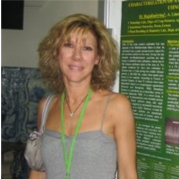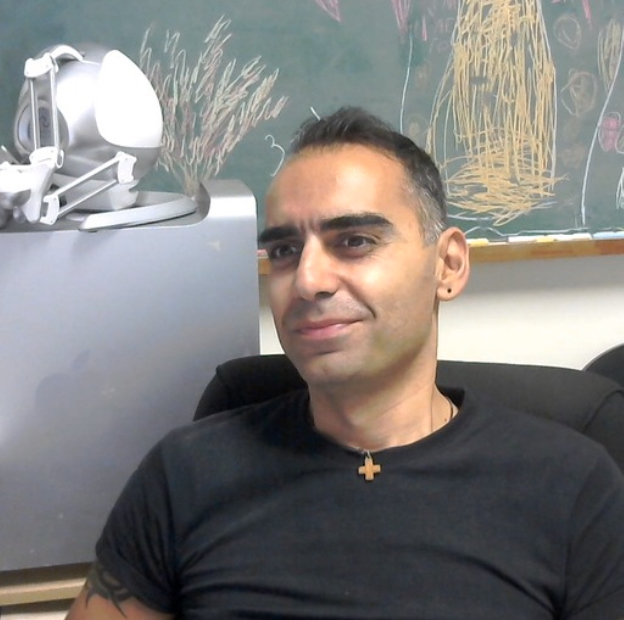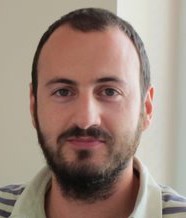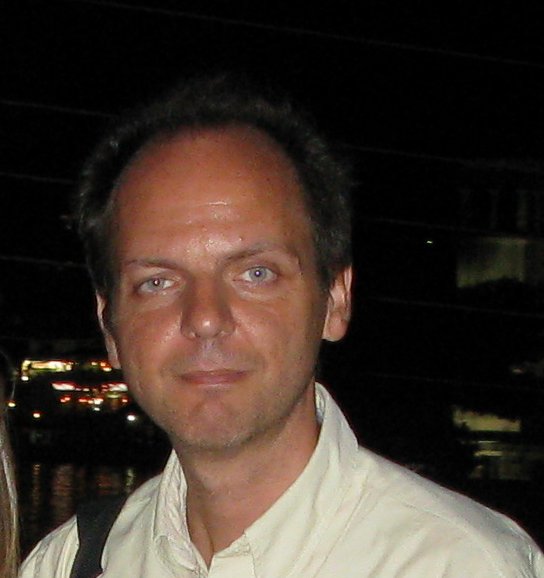About us
Biotechnology is a rapidly advancing discipline which aims at exploitting the progress in life and physical sciences as well as other related fields, in developing new and advanced products, processes and services. Its contribution is important to the quality of life in our modern society, evident by the worldwide massive investments in education, research and applications in health and food sciences, chemical and pharmaceutical industry, primary production processes, as well as energy and environmental issues.
The aim of the Department is to meet the educational and research training requirements for its students by introducing them into advanced and contemporary branches of knowledge and skills related to Biotechnology. In particular, the Department offers an integrated biological and technological background, through teaching and laboratory practice at undergraduate level and high-quality research at a postgraduate level. The education and research provisions taken by the Department, endow its graduates with the necessary modern expertise and skills for their future careers, enabling them to master the complexities of biological and related systems at fundamental and applied level.
Training focuses on genetics and its applications in the modification and evolution of organisms, molecular biology, functional genomics and gene circuits in systems biology, creation and analysis of transgenic organisms (GMOs) as well as the management of the genetic material for primary production through recombinant DNA technology, Omic technologies, synthetic biology and cellular engineering, bioprocessing, biocatalysis and enzyme engineering, production of high value enzymes and proteins and their applications in life sciences, bioenergy using 'green organisms', pharmaceutical biotechnology for production of biologics from 'cell factories', biophysics and bioinformatics in understanding the structure and function of biomolecules and biosystems, nanotechnology, biosensors, microelectronic systems and molecular techniques as analytical and diagnostic tools.
Biotechnology graduates should be qualified for employment in both private and public sectors, for example, educational and research institutions, research and diagnostic laboratories, analytical and quality control laboratories, hospital and microbiology laboratories, companies engaged in the production of primary (bio)materials and biologics or marketing bioscience and related products, regulatory authorities responsible for the legislation of bioprocesses and bioproducts or various other agricultural, pharmaceutical and biotech companies.
Short history
The history of the current Department of Biotechnology of the Agricultural University of Athens, formally begins in 1989, a year that constitutes a milestone in the evolution of the Institution, since the Athens Agricultural School [1], until then, was renamed by the Law 377/1989, to the Agricultural University of Athens, while seven independent Departments were established. The newly established Department of Agricultural Biology and Biotechnology, in the first year of its operation 1989-1990, accepted students of the University by transfer from the existing Departments, while from 1990 the Department is declared in the computerized high school graduates' form and students are admitted to the Department by the Panhellenic General Examinations for the A. In the four-year period 1991-1994, 30 students were admitted annually, while in 1995 the Ministry of Education increased this number to 40 [2]. The first President was Professor of Genetics Mr. Michael Loukas, who inspired and pioneered the creation of the Department, which was the first Biotechnology Department in a University Institution in Greece.
In 1992, at a special meeting of the Department, it was decided that Professors Fotis Kafatos (Harvard University & University of Crete) and Mr. F. J. Ayala (University of California) be awarded Honorary Doctorates of the Department, in recognition of their invaluable contribution to the science of Genetics and Biology in general [3]. The Senate (session 193/28.09.1995) decided to rename the Department of Agricultural Biotechnology [4], while the Agricultural University of Athens was still the only university in Greece that provides education in Biotechnology at the Departmental level [5]. Until 1998, the admission bases observed a systematic manifestation of greater interest from the GPA candidates. [6].
By the Presidential Decree 80/2013 (Government Gazette 119 A/28.05.2013), two Faculties were established at the G.P.A., the School of Agricultural Production, Infrastructure and Environment and the School of Food, Biotechnology and Development. The Department is renamed as the Department of Biotechnology and is part of the School of Food, Biotechnology and Development of the Agricultural University of Athens [7]. From 01.09.2019 the Department of Biotechnology [8] is part of the School of Applied Biology and Biotechnology [9].
During the academic year 2019-2020 the Department completes thirty years of operation and 118 students were enrolled in the first cycle of studies; in the second cycle of studies the total number of registered postgraduate students is 35 and in the third cycle of studies the number of registered doctoral candidates is 40 [10]. The website of the Department of Biotechnology is located at w1.aua.gr/gbt/.
Evaluation
The concept of Evaluation in higher education was introduced by Law 3374/2005, according to which, "Evaluation consists of the systematic, documented and detailed assessment, highlighting and recording of the work of Higher Education Institutions, using objective criteria and the critical analysis and identification of any existing weaknesses and deviations in relation to their academic character, objectives and mission, ..."
The Agricultural University of Athens, sharing the need for a systematic collection and recording of objective indicators - both qualitative and quantitative - has implemented an evaluation system, in accordance with the institutional framework in force in our country (Law 3374/2005), for the first time in 2008, for the academic year 2007-2008, and it continues every academic year.
The evaluation criteria and indicators revolve around the following axes:
- The quality of the curricula
- The quality of the teaching work
- The quality of the curricula and the quality of the research work
- The quality of the teaching and research activities
Social contribution
The Department of Biotechnology, since its establishment in 1989, has as its fundamental objectives the exploitation of the impressive progress that has been made in Biological and related sciences, in order to develop new and advanced products and services, the production, transmission and promotion of knowledge and science through research and teaching and contributes to the formation of well-educated and responsible scientists. Biotechnology makes a significant contribution to the health, industry, food, nutrition, primary production, energy, environment and quality of life of modern society. In its 30 years of operation, the Department of Biotechnology has contributed to the academic, economic/productive, social and cultural development of the GPA and the country.
Student Registration
Info about Student Registration will appear here if applies
Genetics Laboratory
Aims of this Laboratory are the teaching of the courses (Theoretical and Practical) Genetics, Population Genetics, Quantitative Characters, Evolution, Molecular Recognition and Animal Biotechnology and research subjects on animal and plant population genetics, insect resistance to pesticides, animal and plant biosystematics, molecular genetics and evolution, animal biotechnology etc.
Faculty









Publications
Research Programs
GHOST - Microsoft Genomics Grant
Adjust EBOLA - Dx - Biochemical Adjustments of native EBOV Glycoprotein in Patient Sample to Unmask target-Epitopes for Rapid Diagnostic Testing
DIVINE - Development of Precision Agriculture system for monitoring Soil Microbiome and crop health in vines
MilkSafe – Fingerprinting Human Breast Milk & Exosomics
darkDNA - AWS Amazon. An ICT platform to fuse, filter & mine heterogeneous medical data
Digital Innovations Hub – AI in Digital Health
MetaMilk - Strategy for Excellence in Universities & Innovation
Laboratory of Enzyme Technology
The Laboratory is engaged with undergraduate teaching on several courses (Analytical Biotechnology, Enzyme Biotechnology, Molecular Enzymology and Clinical & Pharmaceutical Biotechnology), whereas its research activities focus mainly on enzyme biotechnology and enzymology, encompassing (i) downstream processing for the isolation and purification of enzymes, (ii) enzyme immobilization for biosensor development, (iii) protein engineering and enzyme redesign, (iv) design and study of enzyme inhibitors with pharmaceutical and therapeutic potential, and synthetic biomimetic ligands applicable to affinity chromatography, (v) omics technologies, and (vi) enzyme-based biotransformations for the production of high-added-value compounds.
Faculty





Publications
Research Programs
More effective L-Asparaginase Enzyme for Acute Lymphoblastic Leukemia Therapy: Design, In vitro Application and bioprocess
Training next level scientists and researchers to develop highly selective and safe insecticides – CypTox (ProjectID: 101007917)
Demonstrative process for the production and enzymatic recycling of environmentally safe, superior and versatile PHA-based rigid packaging solutions by plasma integration in the value chain
R&D of New Microalgae Pearl Powder-Based Bioactive Products Based on Green Enzyme Technology
Training network for exploring microalgae diversity for the development of novel antiviral compounds AlgaeNet4AV
Construction of a FLEXIble and adaptable ENZYMatic biotechnological platform for sustainablE industrial production of bio-based Fatty amines from side stream materials
Biomimetic CO2 Fixation and Utilization for Formate Production
Enzybiotics-tailor-made novel weapons in the fight against drug-resistant bacteria
Innovative solutions for sustainable and Environmentally friendly plant protection of fruit growers, Flagship actions in interdisciplinary scientific areas with a special interest in the connection with the productive tissue
Laboratory of Molecular Biology
The members of the Molecular Biology Laboratory are involved in the teaching process of core curriculum courses to both under- and postgraduate students. The laboratory is focused on leading edge fields of Research and Development associated mainly with Plant and Microbial Biology. The research includes the fields of Molecular Biochemistry, Plant and Microbial Physiology, Functional Genomics, Proteomics and Metabolomics. The staff excels in basic and specialized Molecular Biology and Genetic Engineering techniques including gene expression analysis by PCR, RT-PCR, q(RT)-PCR and in situ RNA hybridization, recombinant protein expression in heterologous systems, enzyme kinetics, protein immunolocalization, cell or tissue culture, construction of transgenic plants and analysis of secondary metabolites in plants.
Faculty




Publications
Research Programs
Physics Laboratory
The Laboratory of Physics is engaged in teaching and research activities that include: General Physics, Biophysics, X-ray crystallography, Crystallographic Methodology, Study of molecular structure, cyclodextrin and their complexes, nanotechnology, molecular dynamics, research and application of image digital analysis.
Faculty







Publications
Research Programs
METEO-GRAPE
Laboratory of Cell Technology
The laboratory of Cell Technology is engaged in research and teaching activities and meets respective requirements in the following scientific fields: (i) In vitro cell culture and processes (ii) Cell-based biosensors (iii) Bioelectricity and electrophysiology (iv) Nanobiotechnology (v) Cell, tissue and organ engineering (vi) Cell factories. The laboratory avails over the following permanent facilities/units: (a) Animal cell culture unit (b) Plant tiisue culture & micropropagation unit (c) Electrochemical and cell-based biosensor unit.
Faculty





